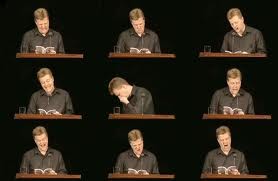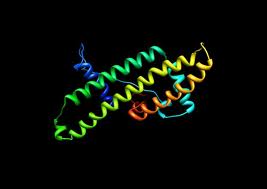Christian Bök and the quest for immortality

A recent issue of The Capilano Review focused on “ecologies,” gathering work that some people might want to assemble under the heading of “ecopoetics.” It is still not the easiest literary brand to define, with capacious boundaries and more questions than answers (which is what keeps it interesting, despite the fact that a lot of work that we once called, with a yawn, “nature poetry,” now cuts a more dashing figure under the heading “ecopoetics”). Nevertheless, I did find myself doing a double take at the inclusion here of Christian Bök’s “The Extremophile,” which was even the subject of a series of featured responses at the issue’s official launch. Is Bök’s work an example of “ecopoetics” (whatever that might turn out to be)?
Of course, Bök is already associated with a strong brand—conceptualism—though that doesn’t mean he can’t double-down. But let’s back up just a bit.
“The Extremophile” is a poem that introduces us to deinococcus radiodurans, the “hero,” if you will, of The Xenotext, Bök’s ambitious and long-awaited follow-up to Eunoia. Radiodurans is the eponymous “extremophile” of the poem’s title—a bacterium so classified because of its resistance to, well, almost everything. Here’s a slice of Bök’s portrait of the bug:
It eats arsenic. It eats uranium. It resides inside the core of
Reactor No. 4 at Chernobyl. It thrives in the topsoil of battle-
fields contaminated with toxic doses of lead. It thrives in
hydrochloric acid. It can withstand temperatures of 373 ° k,
hot enough to boil the water in its own cells.
The Xenotext revolves around Bök’s attempt to write a poem in which each letter of each word is also a set of genetic instructions. Transcoded and inserted into the DNA of radiodurans, the bacterium would then, hypothetically, “read” the poem and “express” it, genetically, as it reproduces at the cellular level. As Bök presents the project, he will thus write a poem that will outlive civilization itself, achieving what so many poets have sought throughout history: immortality, won through their art (think: Spenser’s argument with his lover in Amoretti LXXV).
Conceptualism, or ecopoetics? I think, what’s revealed here, is that “ecopoetics” is a conceptual phenomenon—that one is working at the conceptual level when speaking of the neighbouring zones of ecology and poetry. But what is even more striking is what the “ecological” valence of Bök’s conceptual project reveals about conceptualism.
Aside from its all-too frequent de-politicization of the avant-garde (something to discuss, perhaps, in a future commentary—for now, I’d just note that I’m addressing here more what conceptualists say about conceptualism than the work itself), one argument I have had with the phenomenon is that, while it decries “expression” and “self-presentation,” its practitioners tend to spend a good deal of time celebrating their individual efforts and achievements. That is to say, everywhere around the conceptual work’s supposed vacuum of expression is a great deal of critical and self-reflexive expressiveness, often heralding either the intensive labours of the poet in fashioning the work or, conversely, the outrage the poet’s work (and much-advertised lack of “creativity”) provokes.

So—on first looking into Bök’s Xenotext, I find myself balking at an apparent contradiction: the author at once wants to vacate authorship as such (DNA wrote this, not me—the poem belongs to the bug, which is simply a machine for producing poetry) and achieve that oldest of authorial desires: immortality through poetry.
However, on second glance, something much more interesting is revealed. The poetic quest for immortality is, perhaps, no different that the impetus behind all biological life—how to extend the species in time, how to endure in a universe governed, quite strictly, by the second law of thermodynamics? Bök is thus revealed as at once playing with one of our oldest literary cliché (the immortality of art) and the very essence of biology (the fragility of life forms and the quest, via genetic reproducibility, to do an end-run around entropy).
Conceptualism, I’d argue, is primarily about the concept of the author (and all her Foucauldian functions). “Creativity,” in Bök’s conceptual (OK, I will say it) ecopoetics is revealed to be just a fancy way of describing what all life forms do: “express” themselves in the search for durability in an unfriendly universe. If a “thinkership” is what conceptualism wants, there’s a great puzzle to be pondered here: how different is human (cultural) expression from biological (gene) expression? What exactly is “culture,” and its “authors,” when culture evolved, as an adaptation, some millennia ago in our species biological trajectory?
There’s a politics to this too, as social formations and systems of “government” are attempts to achieve endurance through expressivity too. The political, the literary—all these may be extensions and complications of the logic of our genetics. But that’s a topic for another discussion.
Neighbouring zones